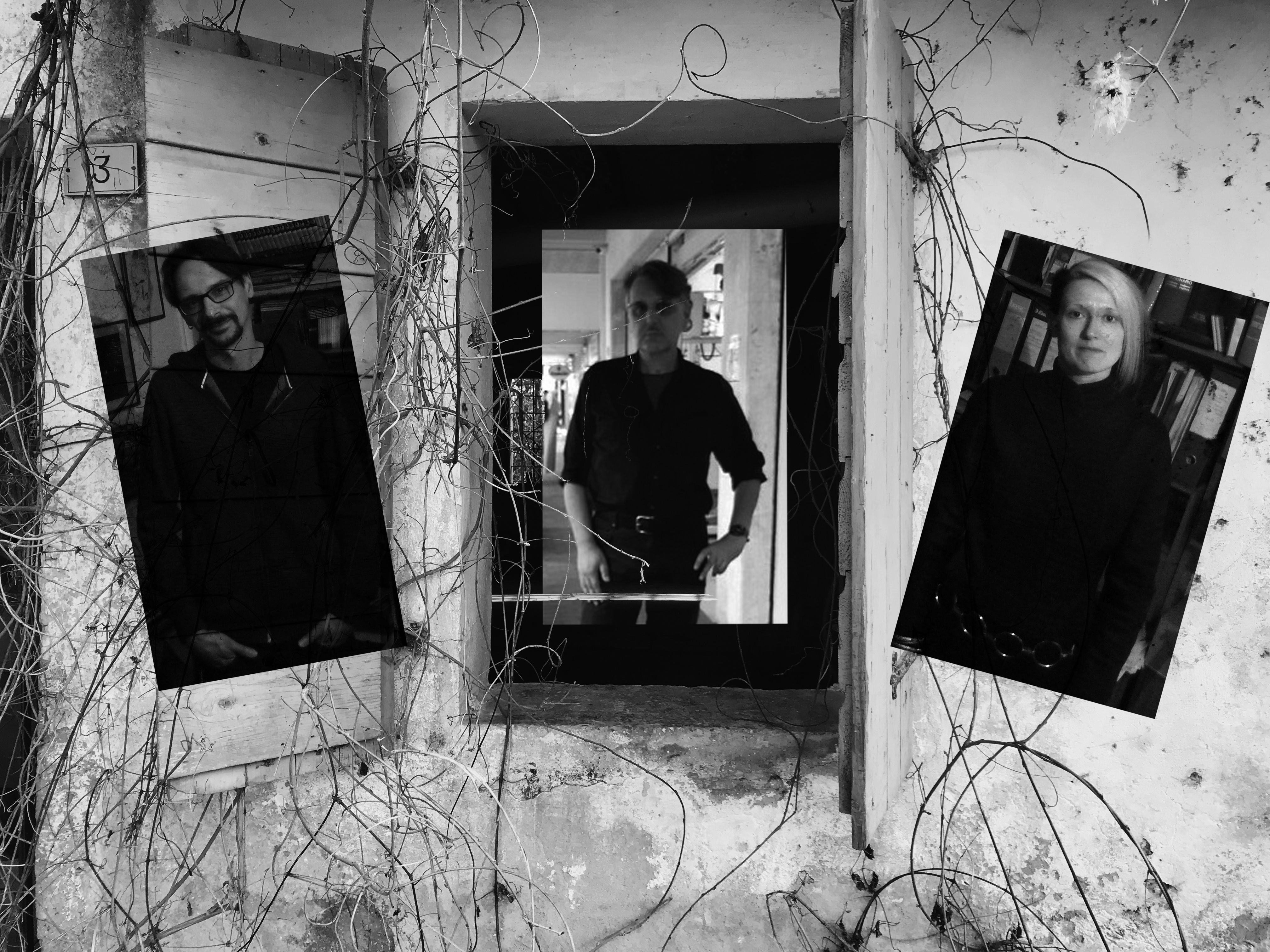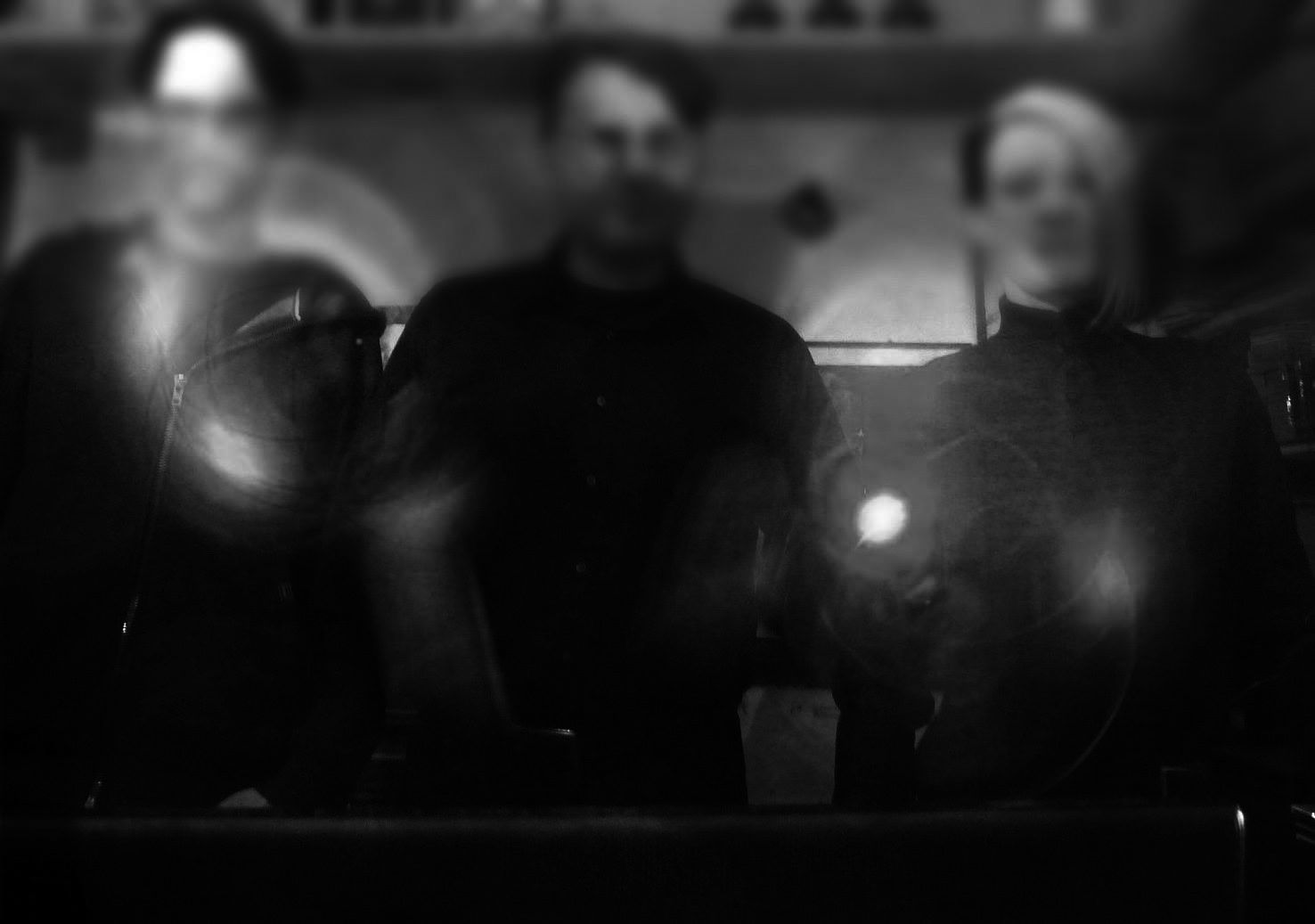 Although the record label and mailorder Final Muzik was “only” launched in 2004, its program is deeply rooted in the very rich Italian experimental and industrial culture of the 80s, and not only because it is – in terms of parts of the personnel – reminiscent of the tape label and fanzine Discipline, which was founded in 1986 and already back then built a bridge between local and international sound art. In the new millennium, when the avant-gardes of the late 20th century could already look back on an eventful history, Final Muzik among many other things made a name for itself with reissues of sought-after rarities, and so the label gave works such as Maurizio Bianchi’s “I.M.B.” or Borghesia’s “Un Chant d’Amour” their rebirth. Another focus was the “Singles Club” series from 2014-16, which was very coherent in it’s design. However, the operators Vanessa Venerdi, Gianfranco Santoro and Cristiano Deison are always concerned with a lively diversity that rejects the blinders of rigid genre concepts. At Final Muzik you will find Teho Teardo and M.B. alongside Martyn Bates and Alan Trench or the Canadian wave stars Psyche, the exceptional Roman musician Lyke Wake alongside Slovenia’s Abbildungen Varieté, the noisemaker Claudio Rocchetti, experimental trumpeter and sound artist DBPIT and, not at least, Deison’s own work. We recently spoke to the label’s operators about all of this and much more.
Although the record label and mailorder Final Muzik was “only” launched in 2004, its program is deeply rooted in the very rich Italian experimental and industrial culture of the 80s, and not only because it is – in terms of parts of the personnel – reminiscent of the tape label and fanzine Discipline, which was founded in 1986 and already back then built a bridge between local and international sound art. In the new millennium, when the avant-gardes of the late 20th century could already look back on an eventful history, Final Muzik among many other things made a name for itself with reissues of sought-after rarities, and so the label gave works such as Maurizio Bianchi’s “I.M.B.” or Borghesia’s “Un Chant d’Amour” their rebirth. Another focus was the “Singles Club” series from 2014-16, which was very coherent in it’s design. However, the operators Vanessa Venerdi, Gianfranco Santoro and Cristiano Deison are always concerned with a lively diversity that rejects the blinders of rigid genre concepts. At Final Muzik you will find Teho Teardo and M.B. alongside Martyn Bates and Alan Trench or the Canadian wave stars Psyche, the exceptional Roman musician Lyke Wake alongside Slovenia’s Abbildungen Varieté, the noisemaker Claudio Rocchetti, experimental trumpeter and sound artist DBPIT and, not at least, Deison’s own work. We recently spoke to the label’s operators about all of this and much more.
German Version
Many smaller labels are formed by musicians as a vehicle for releasing their own music or that of friends. But sometimes it’s also about supporting certain artists that you find undervalued. Did you have a specific impulse to found Final Muzik?
Gianfranco – The impulse is the same I had when I started a cassette-label in the mid-80s: becoming “a bridge” to offer people some good releases, it doesn’t matter if from a totally unknown project or from famous artists. Passion, enthusiasm, research, freedom/independence.
Deison – Our aim is to release, promote and offer music that we would like to listen to, or bands that we admire…sometimes this comes from friends other times we just fell in love with a record that was sent to us.
How did you find the name for your label? Do you release music for the end times or do you release music that in itself is final and can’t be followed-up?
Gianfranco – Strangely, the name Final Muzik represents a new starting point. After other labels we founded, radio braodcasts, reviewing and interviewing artists for our fanzines and other magazines, we thought about a new beginning. It was 2004. The music we release isn’t “final”: on the contrary, we try to open new doors to new possibilities.
How was your view of the experimental and underground culture in Italy in the early days? Do you feel that you continue (in) a tradition that started in your country in the early 80s?
Gianfranco – I started publishing a fanzine (Discipline) in August 1986; a few months later I founded a cassette-label with the same name. I was fully immersed into the Italian industrial/experimental music scene. I have been deeply influenced by it since the early 80s: artists like Giancarlo and Massimo Toniutti, the TRAX collective, F.A.R., M.B., Lyke Wake, Mauro Teho Teardo, T.A.C., Sigillum S and Tasaday (just to name a few) were and are still very important to me. It was a very rich and prolific decade, with an impressive number of cassette-labels, fanzines and bands. I don’t know whether we continue a tradition with Final Muzik, but we have certainly released many projects (i.e.: a CDr EP series dedicated to the Italian scene, plus many CD albums) that, in some ways, are still linked to the spirit of those years.
How do you work together for the label? Is there some kind of division of responsibilities, or do you cooperate more in a spontaneous way?
Deison – Well, Gianfranco is certainly the main driving force of the label, the one who manages everything, together with Vanessa. I deal more with the technical part, regarding the web-site, graphics, design and the musical-audio supervision of some choices of the label; I often research old, obscure 80s bands for our reissue series, that often took us to unexpected projects.
Gianfranco – Cristiano and Vanessa are my backbone.
Did you see yourself as an international label from the start?
Vanessa – Yes. Whatever sounds valuable to our ears, wherever it comes from, can aim to be released on Final Muzik. So far, the label has produced works by bands and solo artists from England, Germany, Austria, Slovenia, Canada, U.S.A., and…Italy too.
You have a wide range of music styles in your label portfolio, although there are certain notable focal points. Is what you release (in terms of genres) mostly subject to spontaneous decisions?
Gianfranco – When we were (much) younger we have been deeply influenced by the new wave/post punk movement and by the industrial scene. We still keep these roots today, although we are always open to anything new. For this reason, Final Muzik’s catalogue encompasses a wide range of music. We can release an experimental music album as well as a post-punk or a neofolk one. Spontanueous decisions happen, but they are always rooted to our past, in some ways. And to our present.
Vanessa – About the wide range of music styles in Final Muzik’s catalogue, we have even considered metal! I was unsure so I cooled down the enthusiasms…for the moment…
What would you say to somebody who may not be so well-versed in music beyond the mainstream and who asks you what all of your releases/artists have in common?
Gianfranco – I know it’s difficult to say that the Giancarlo Toniutti’s CD we released has something in common with Cyclic Amp’s music. but many customers and friends told me they found a link between many albums they discovered on our label (I mean, albums that are very different from each other). That‘s maybe because they are genuine, interesting and good releases, who knows…Maybe that “becoming a bridge”-thing is working.
In my opinion, even small labels with limited editions that sell out quickly always have something of an archiving function, since they make works – with the help of magazines, databases like discogs etc. – memorable. Do you also want to save certain music from oblivion?
Gianfranco – I agree: independent labels have an important archiving function. Without their precious work, we could not discover many unknown artists today. “Saving certain music from oblivion” sounds a bit dramatic, but it’s correct. In the past, many excellent albums have been released on impossible-to-find tapes or have even never been published. Re-releasing this stuff today has both an archiving function and is a way to finally give them justice. That’s why we started our Final Muzik Eighties series.
When you look back at your catalogue, are there any releases you’re particularly proud of? Is there anything like a favourite record or one that in your eyes deserves more attention?
Deison – I am very happy and proud of our reissues (FM Eighties series) because we have re-proposed and brought to light some small and hidden masterpieces, often forgotten.
Vanessa – Personally, I am particularly proud of the reissue of “The Influence” by Psyche, the 1989 dark electronic album by a band I love. It was their singer Darrin Huss contacting Final Muzik and proposing this reissue in 2011: it was something we would have never expected, it left us amazed and honoured. I still feel this way when I hold or listen to this CD. The impossible happens, sometimes.
Gianfranco – Yes, Psyche! I almost fell from the chair when I read the message in which Darrin proposed the reissue of “The Influence”. I’m also very proud of Borghesia, Abbildungen Varieté, Mortification To The Flesh and Cyclic Amp’s releases; then, working with Teho Teardo, Maurizio Bianchi, Andrea Bellucci and Giancarlo Toniutti – and having Lee Ranaldo’s Text Of Light on our label – was something special. And obviously, everything we did with Twelve Thousand Days.
Among the staples of your label is Twelve Thousand Days, of whom you released four albums. Some might say that they could operate in a much broader context, but I personally love that they exist as kind of a secret tip for the treasure hunters who are familiar with the niches of strange sounds. How did your cooperation with Alan Trench and Martyn Bates start?
Gianfranco – It all started with another fall from the chair! I mean, Alan wrote to me asking whether we were interested in releasing their fourth album, “Insect Silence”, which came out in 2018. I was very happy and enthusiast about this proposal. We all were. You know, Martyn is one of my all time favourite singers. I’m 56 and I discovered Eyeless In Gaza when I was 16: having the chance to release an album with him was a dream come true, period. Same for Alan: I knew Orchis and his work as a founder of World Serpent Distribution, which has been a source of fantastic music for years. I knew (and love) their first three albums as Twelve Thousand Days, so my instant answer to their proposal was a big “Yes!”. We released three further albums by them, which we are very proud of: “Field’s End”, “The Birds Sing As Bells” and “The Boatman On The Downs”. Their music is beautiful, mysterious, obscure and liberating at the same time and they are two gentlemen.
Most of the music you’ve released over the years has come out on CD. If you look at the tonal possibilities and the compactness and then realize that it is still a physical artefact, there is still a lot to be said for the CD in my opinion. Somehow, CDs are even kind of down to earth in regards of all the vintage hipster fuss that was made about pretty vinyls and tapes for decades now. What do you think is the biggest argument for this medium?
Gianfranco – Basically, I love this format. I never wanted to debate about the technical aspects of the annoying “CDs versus vinyl” discussion. I like CDs, especially for certain music genres (who wants to listen to an ambient album with the further background noise of vinyl?): the CD sound is good and you can do a good, decent artwork; it’s easier to ship and cheaper for both producers and buyers. Don’t get me wrong: I also love vinyl, but it’s becoming tremendously expensive. With our mail order we noticed an increase of sales of CDs in the last years.
Labels should always think about spreading their products by way of a physical format that is also affordable to people who have no regular income (the young ones, students, etc.). CDs are perfect for this.
Vanessa – I am – and have always been – a vinyl lover. That said, I am a bit tired of the raging fashion of coloured vinyl (splattered, marbled, smoked, split…ad libitum). Coloured vinyl probably sounds good but it doesn’t always look as good.
What do you think about the future of music production and the formats used?
Vanessa – Everybody has his or her favourite format and the argument on which is the best one can be endless. The interesting thing about the wide choice of formats the listener has nowadays is their juxtaposition rather than their exclusiveness. Hipster vinyl fans don’t forgo streaming music (behind closed doors, maybe); young “digital natives” often look for LPs that are thirty or forty years old, to our amazement as this is something we certainly did not do thirty or forty years ago, while the fiftysomethings who sold their LPs and 12”s collection in the 90s to switch to the handier (and then more fashionable) CDs now try to reassemble it. I believe that the future of music production lies in its diversity.
Is there any artist with whom you would love to work but you feel it is highly unlikely that that will ever happen?
Deison –There could be many … even if, surprisingly, we managed to produce records by Borghesia or Cyclic Amp, bands we used to listen to when we were younger and with whom we never thought we could work close together, creating something original and new with them on Final Muzik.
Vanessa – Evi Vine. Whether it is likely or unlikely, I’ll tell you in our next interview.
Gianfranco – Marc Almond.
Are there already new releases on your schedule? Any plans you’ve already made?
Gianfranco – A new Twelve Thousand Days‘ CD will be available in January/February 2024. The title of the album is “They Have All Gone Into The World Of Light”.
We always consider new releases, so, band and artists → feel free to contact us.
Thank You very much.
